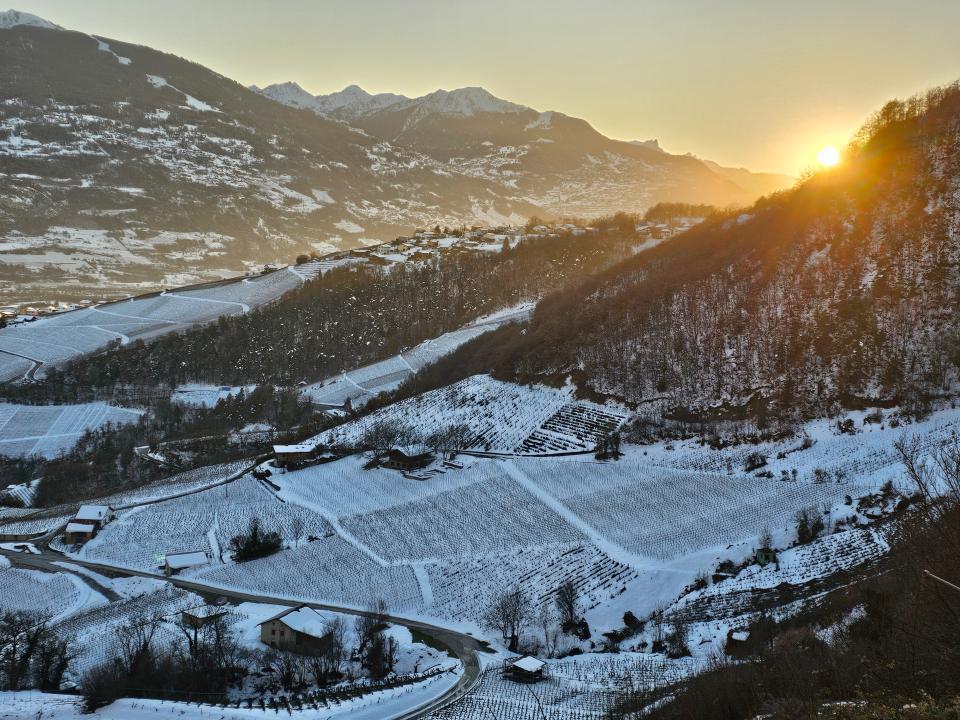
We still have some winter days with snow covering the vineyards.
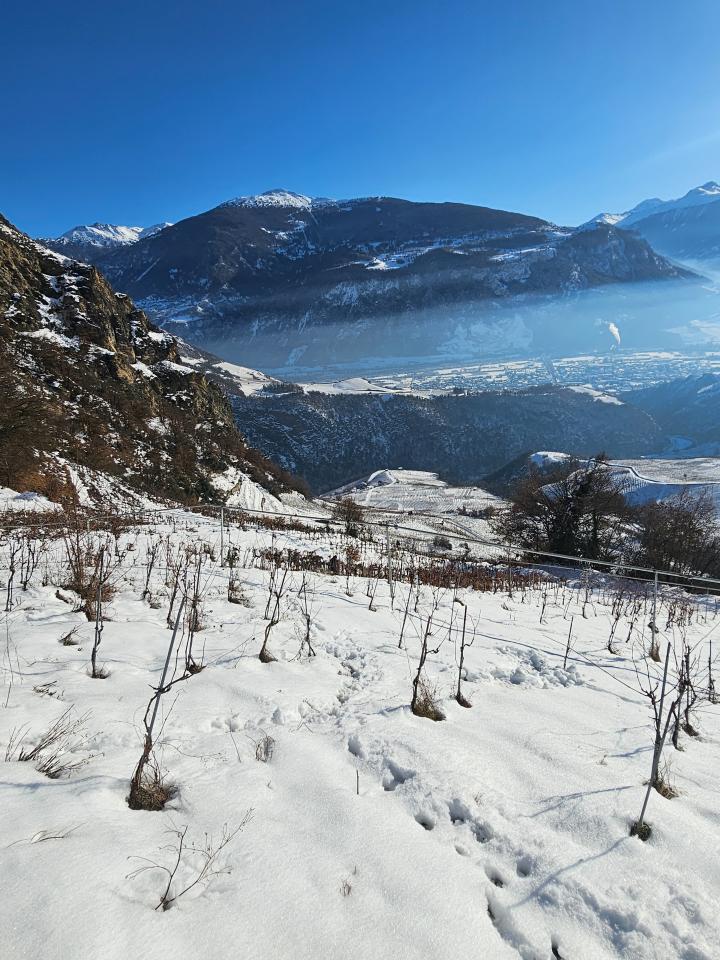
Snow and cold days regulate not at least some nasty pathogens
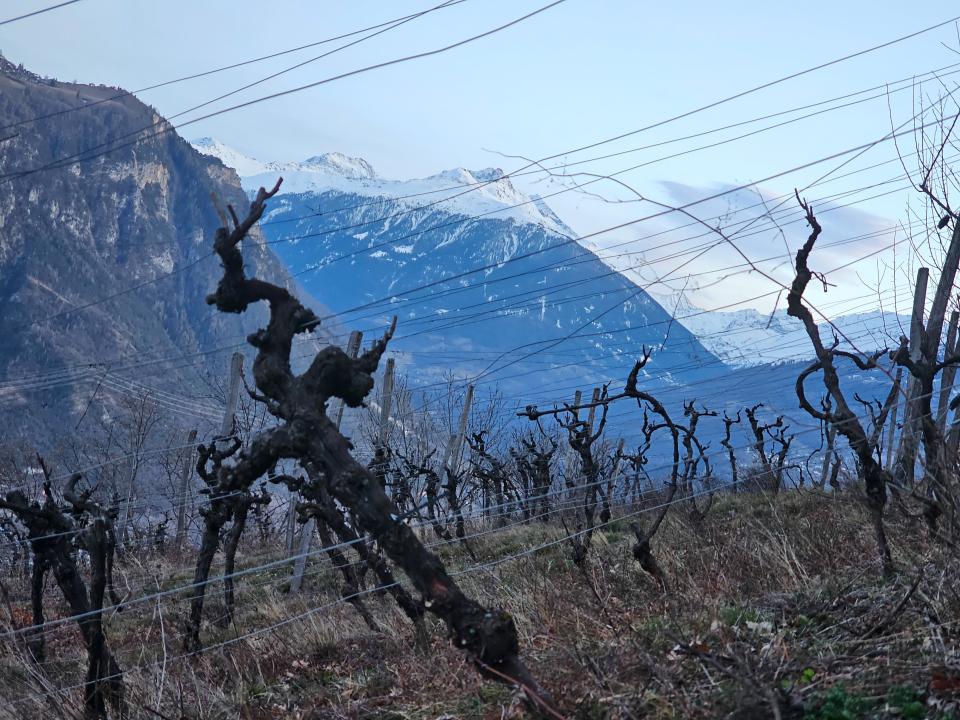
When the snow is gone, and the vines are pruned, the vineyard may look a bit depressing.
It's better to go skiing then.
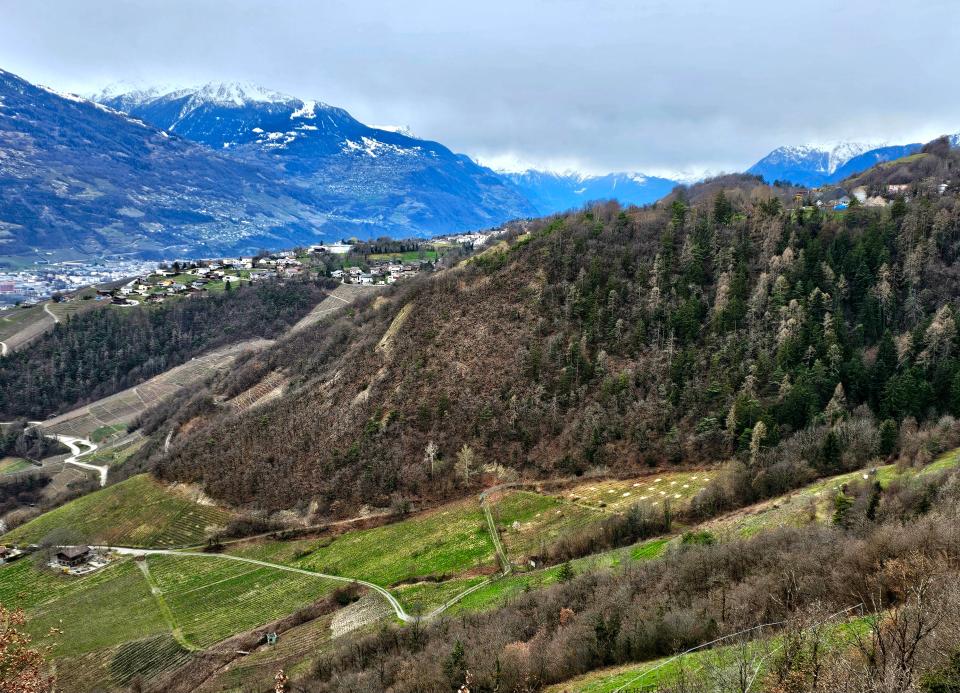
It does not take too long, and the grasses start growing for a new life cycle.
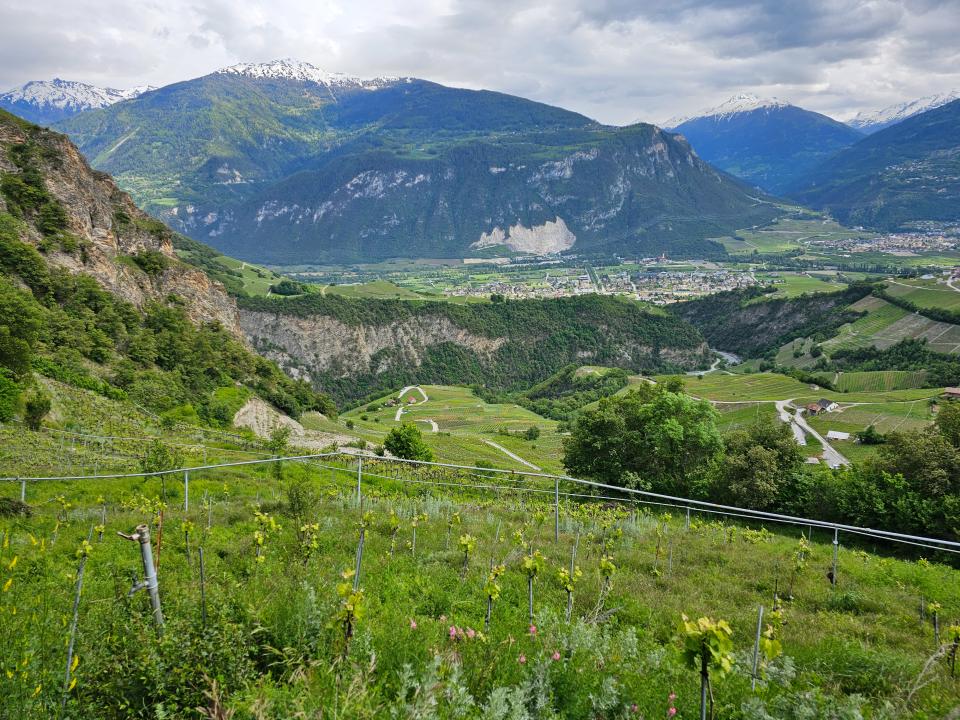
The grasses capture sun energy and CO2, transforming it into energy-rich organic substances
that feed the soil life for several months before the vines get fed by the soil life.
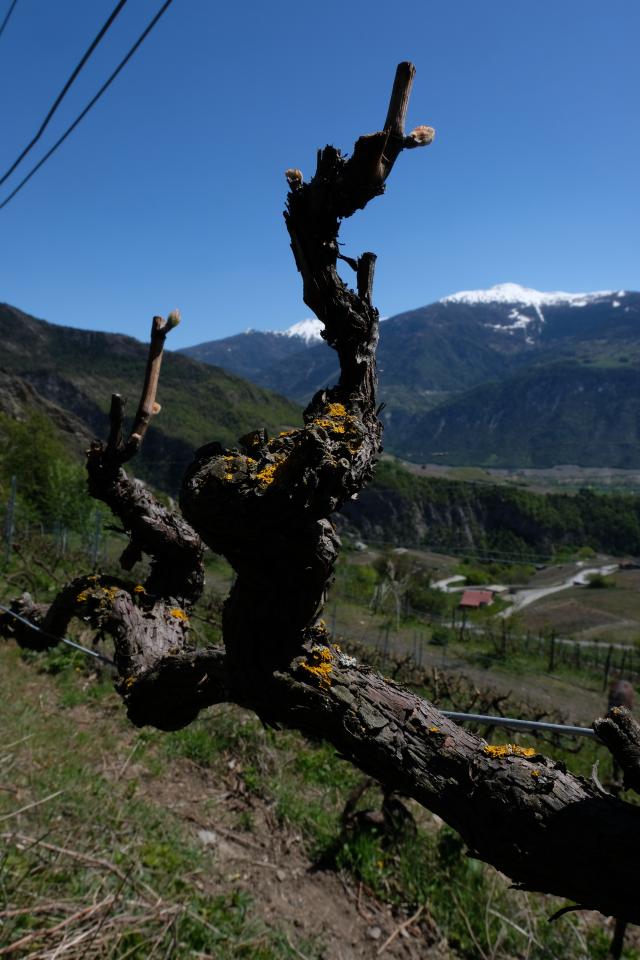
Such a grapevine was pruned more than 50 times, forming the poor plant's appearance.
In a natural state, the vine would need a tree to climb to the light.
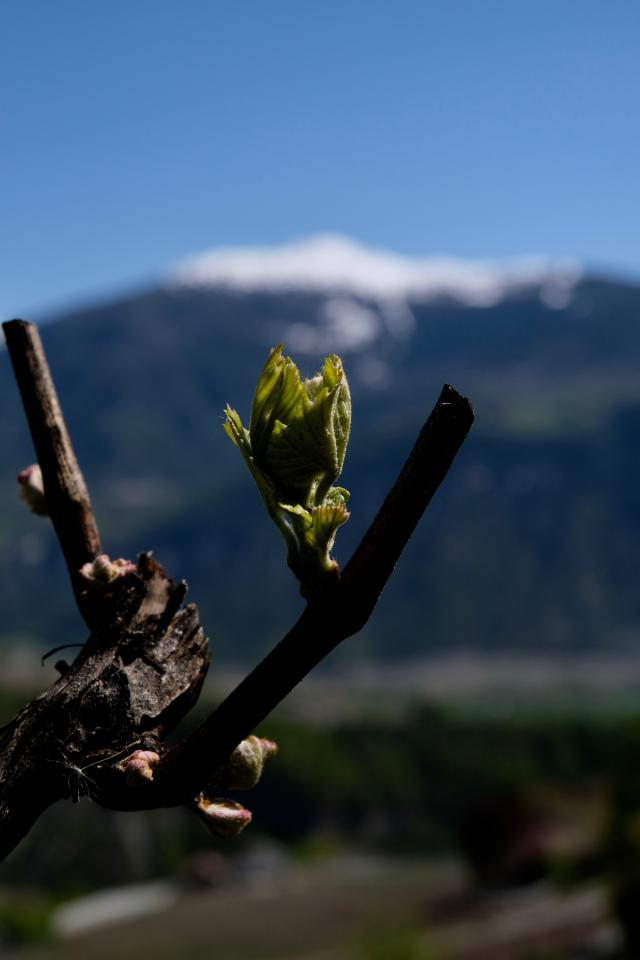
When the buds break, it's time for having no time anymore.
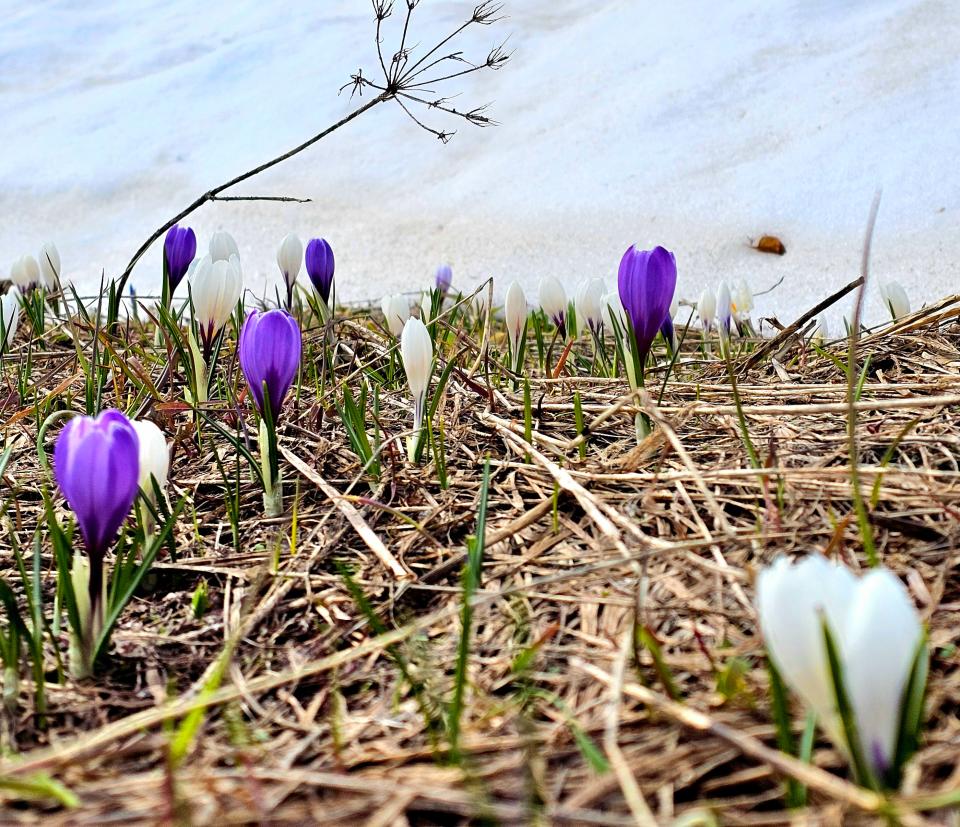
This is also May, just 1200 m higher up in the mountains behind the vineyard.
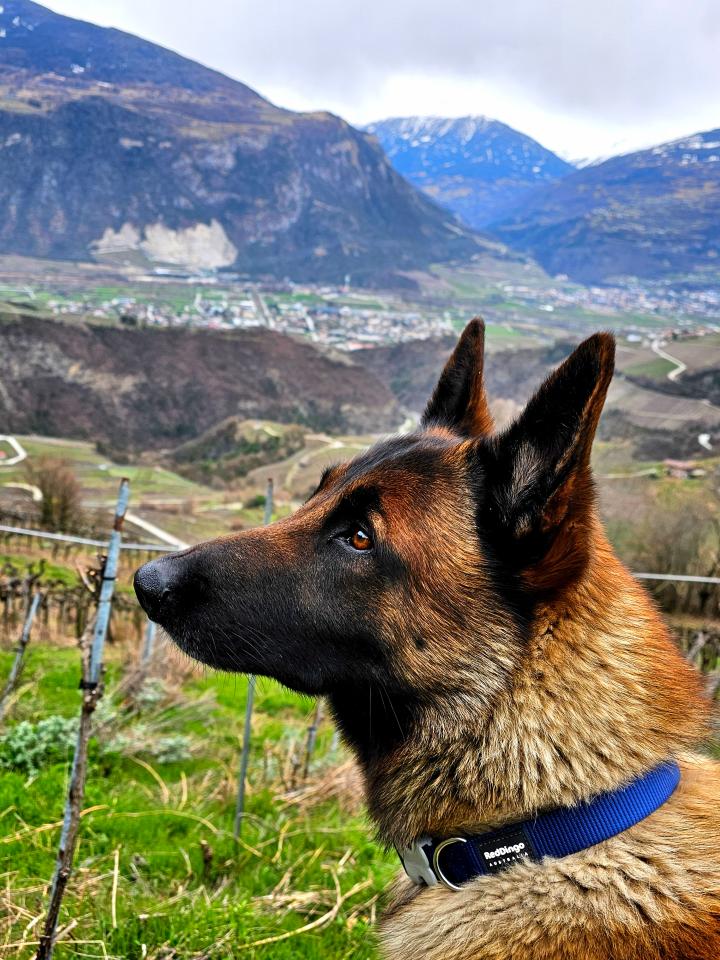
Sky, our Malinois dog, is always with us in the vineyards, although he prefers skitouring
higher up in the mountains.
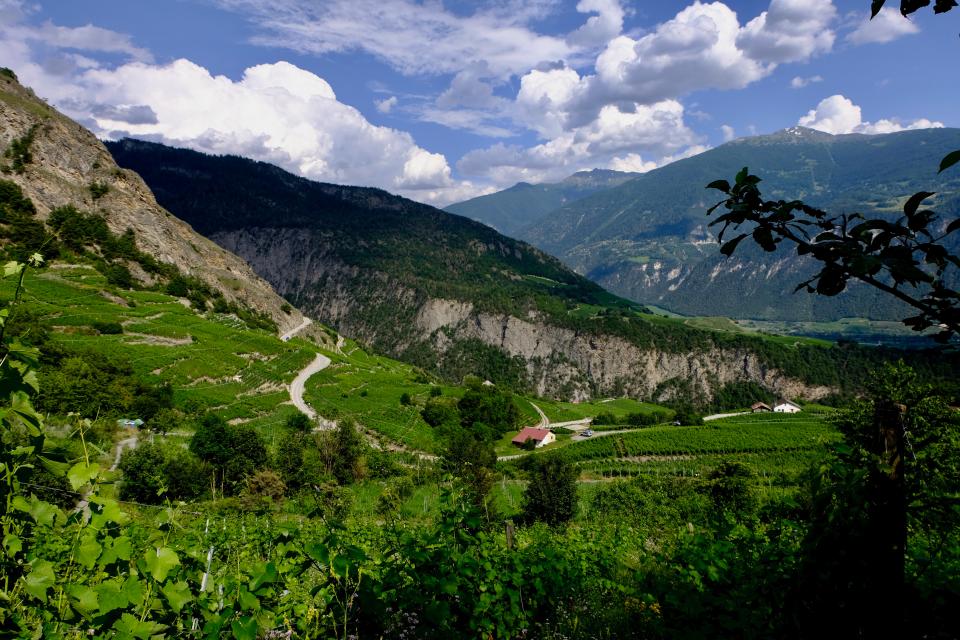
Before summer's first heat wave, the dazzling green chats with the blue sky and some
painted clouds.
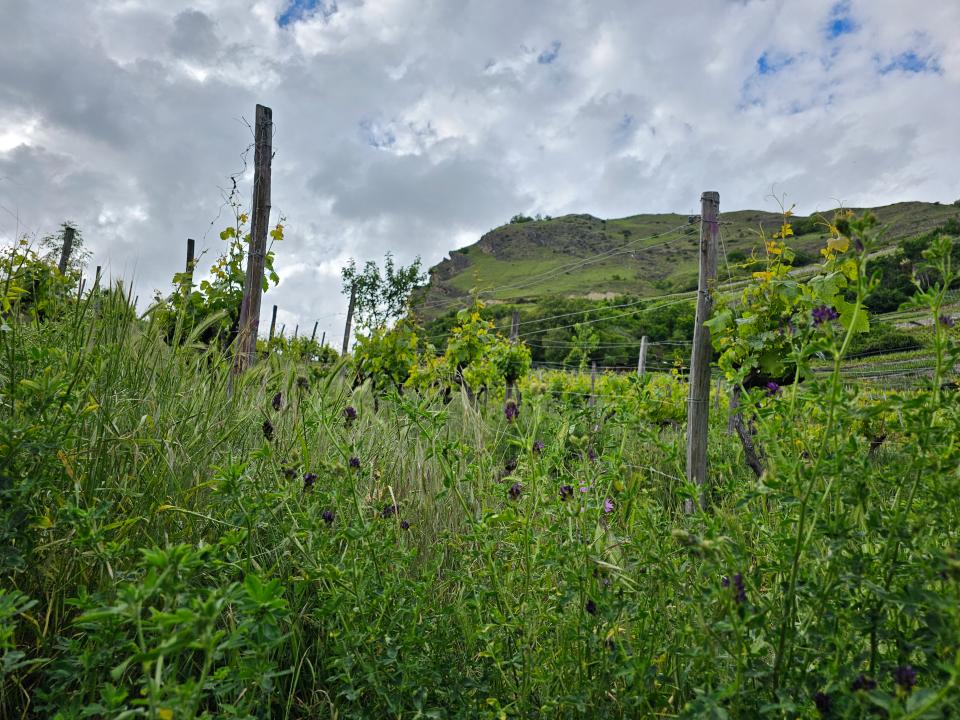
May is the most opulent time of the year. Grasses reach easily 1m50 just before the
wine buds open.
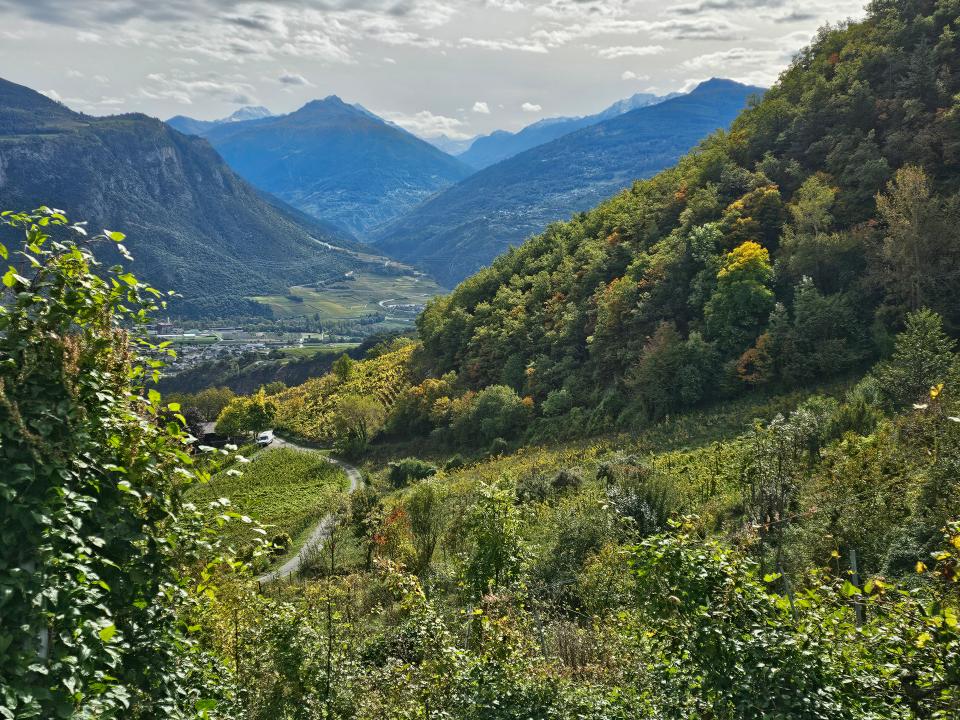
The entire force of nature is now dedicated to growth.
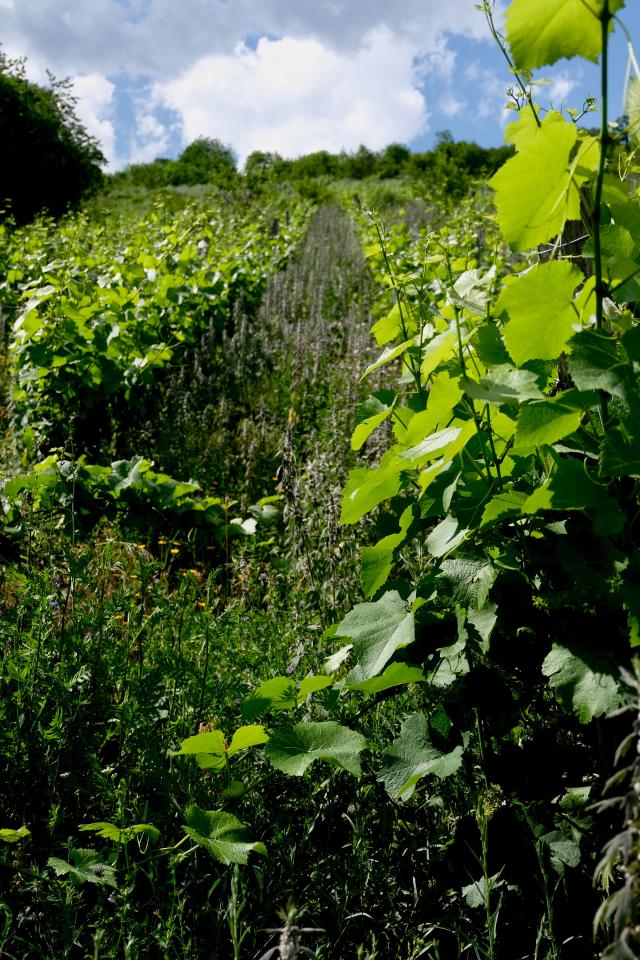
Days become hot, and it is hard to keep pace with all the work to be done in vineyard.

Good to have some animals that keep the grass under control. We started to transform
part of the vineyard into orchards to make cider. Dwarf sheep maintain the grasses.
Here in the former Clos des Matyres.
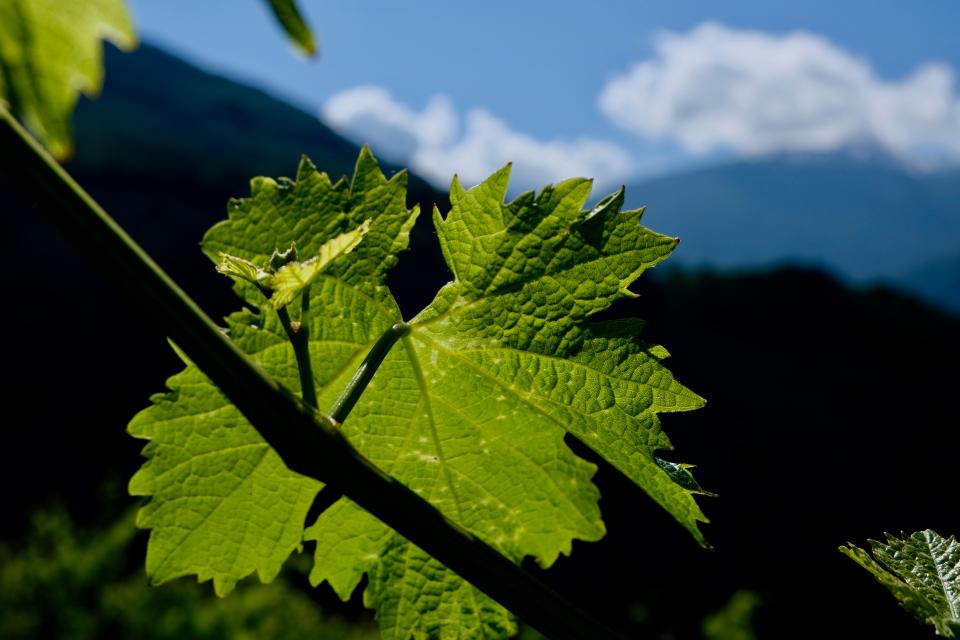
The leaves transform sun energy into aromatic profiles!
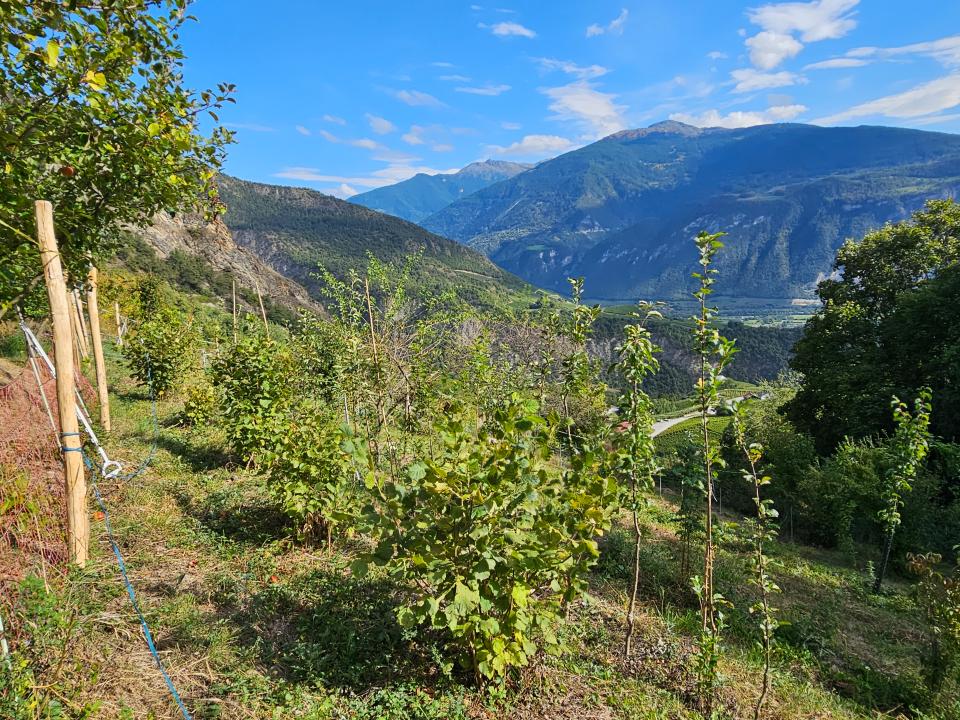
After solstice plant growth slows down and life becomes kind of normal again.
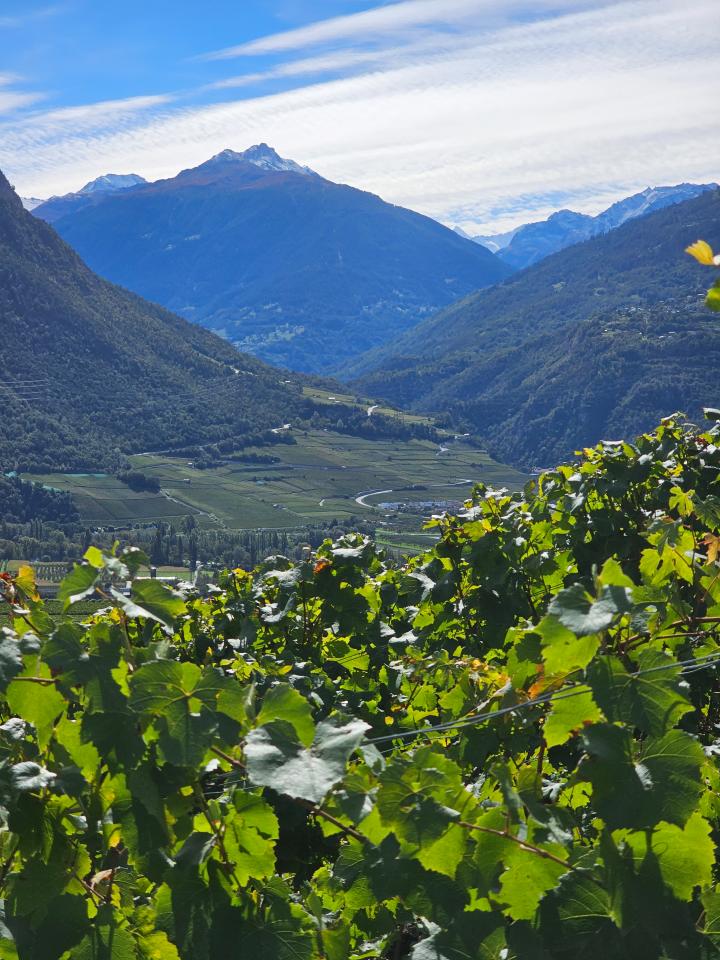
There are days to sit and marvel.
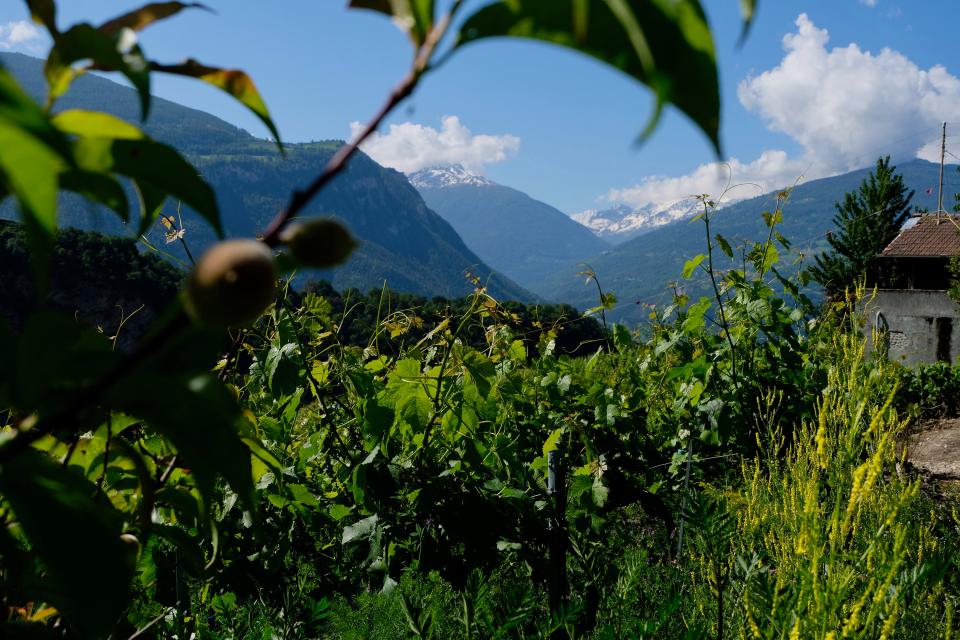
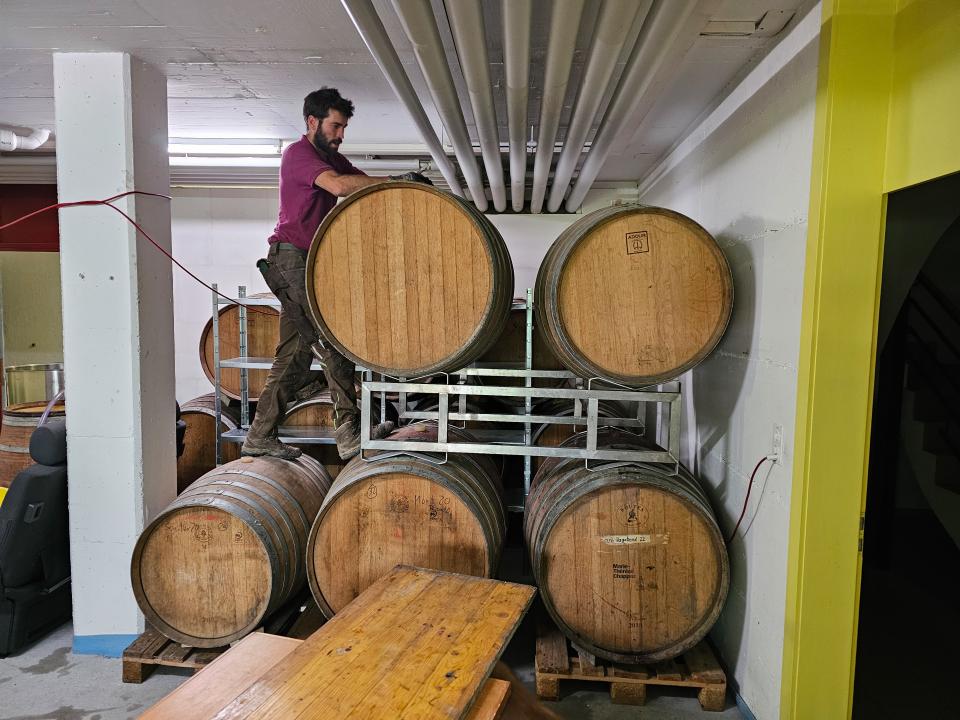
In 2012, we restored an old wine cellar using a biochar-clay plaster for the first
time. Unfortunately, the cellar was sold with the house in 2024, and we had to temporarily
move the wines into a modern cellar.
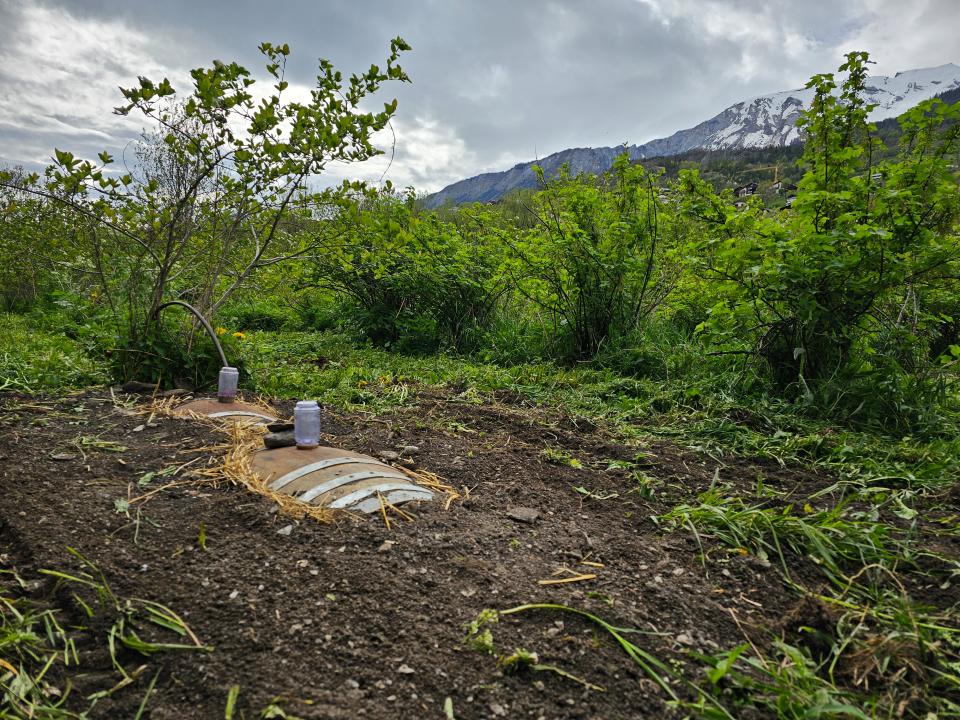
When we move the cellar, we buried two barrels into the garden soil to make vinegar.
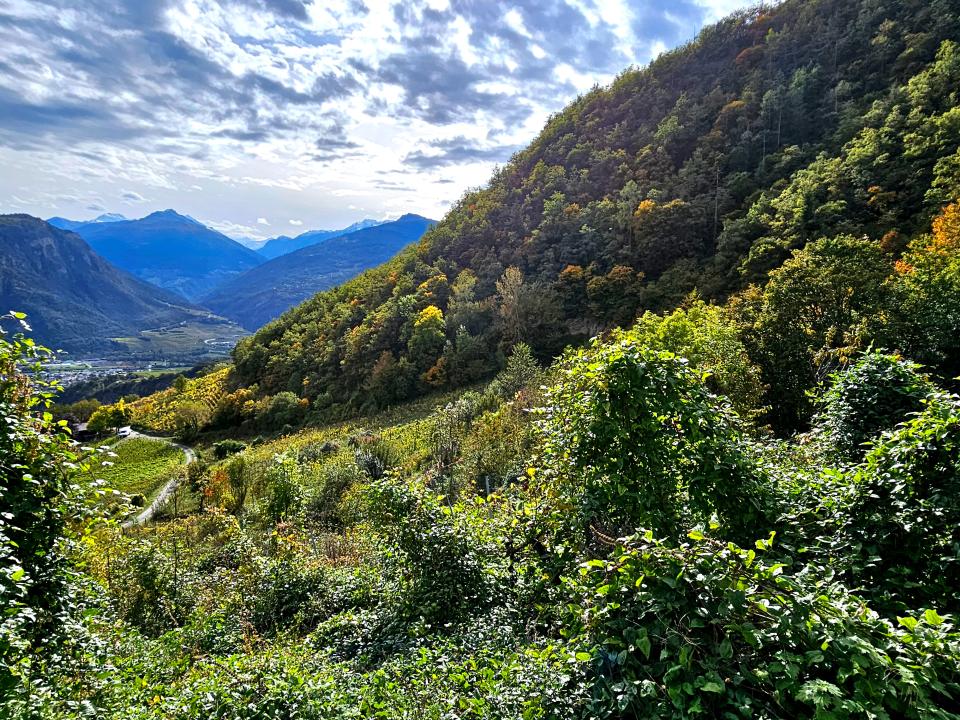
We hope for a dry summer that keeps mildew in check. But sometimes, summer becomes
a tropical nightmare.
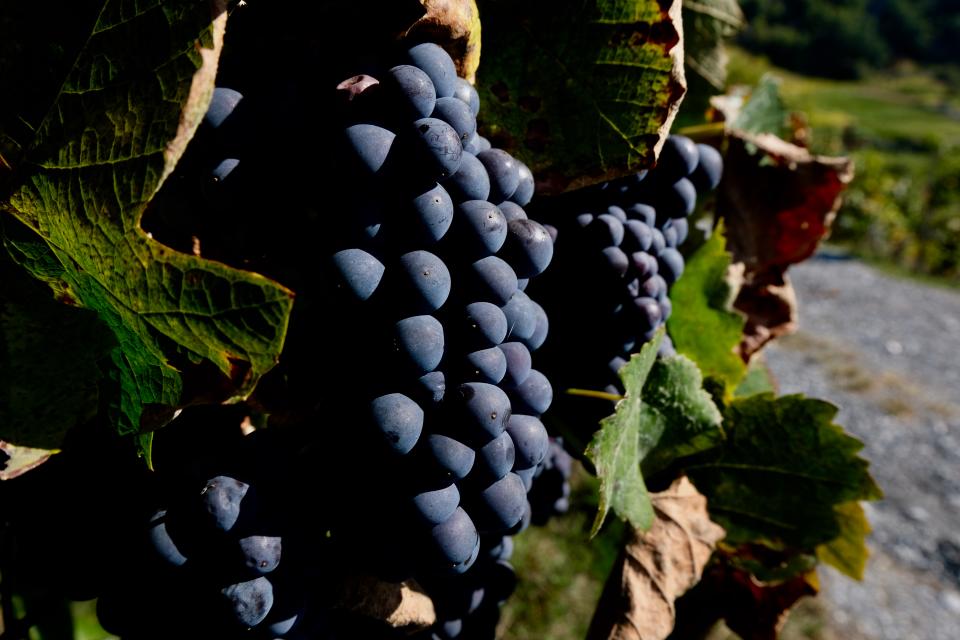
But in the end, despite all worries, there are always grapes to harvest.

As we are not overly protective, grapes that pass all the stresses of the season are
so complex and tasty that we do not worry about fermenting them for six to nine months
on the skins.
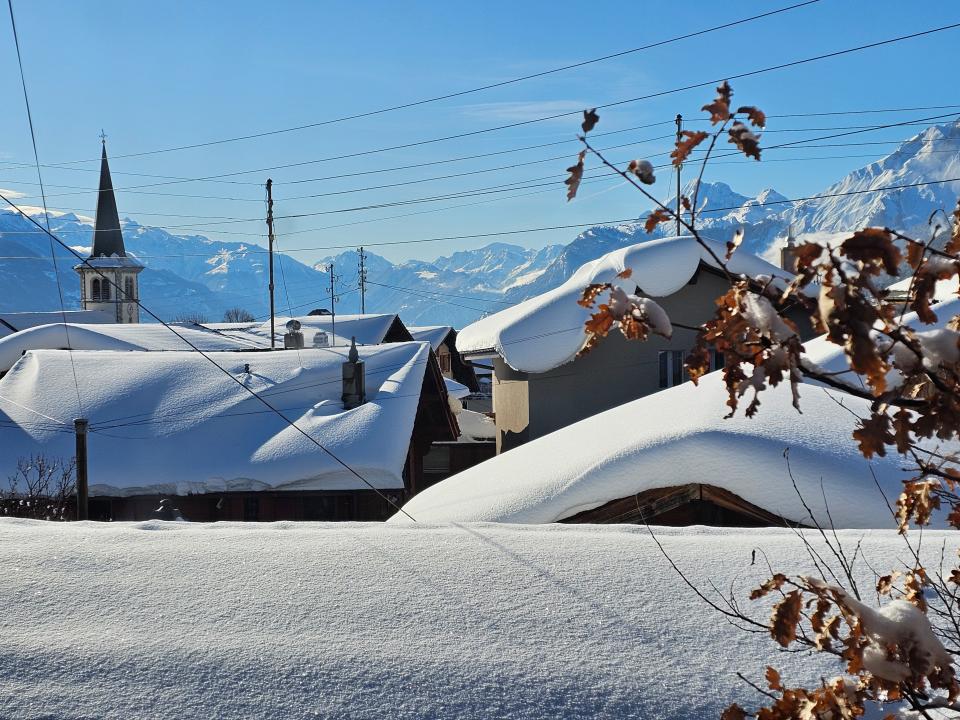
And suddenly, the winter is back. The cellar is again at 6 °C. In the kitchen its
25 °C or more from the old wood stove. Drinking temperatures vary all the time. Impossible
to rely on wines that are good only at recommended temperatures.
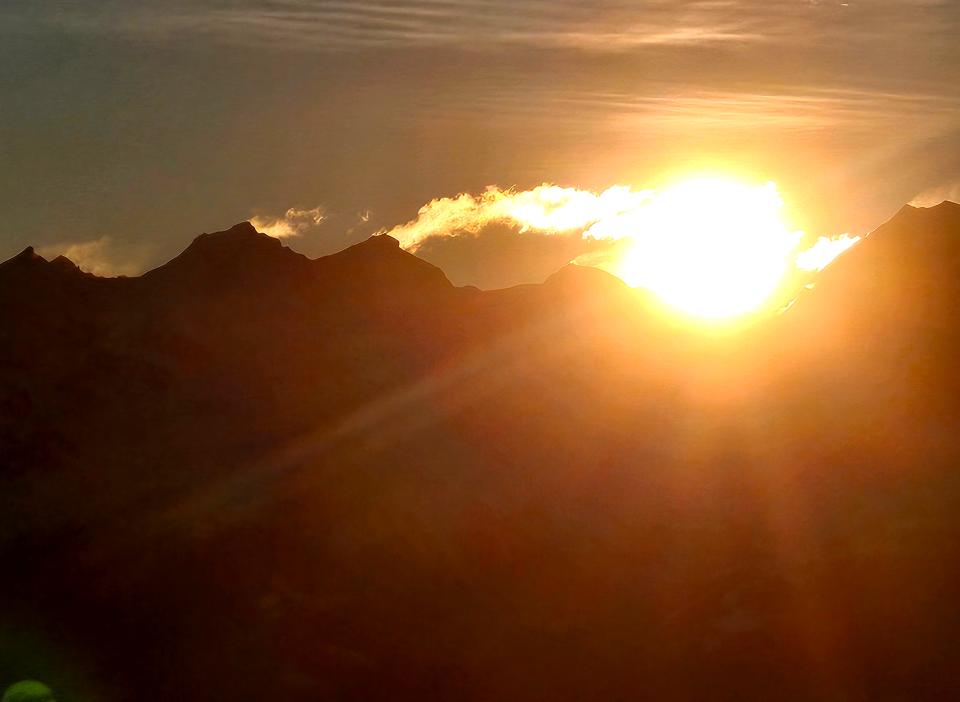
![[image/logo]](/img/mythopia_logo.jpg) Mythopia
Mythopia